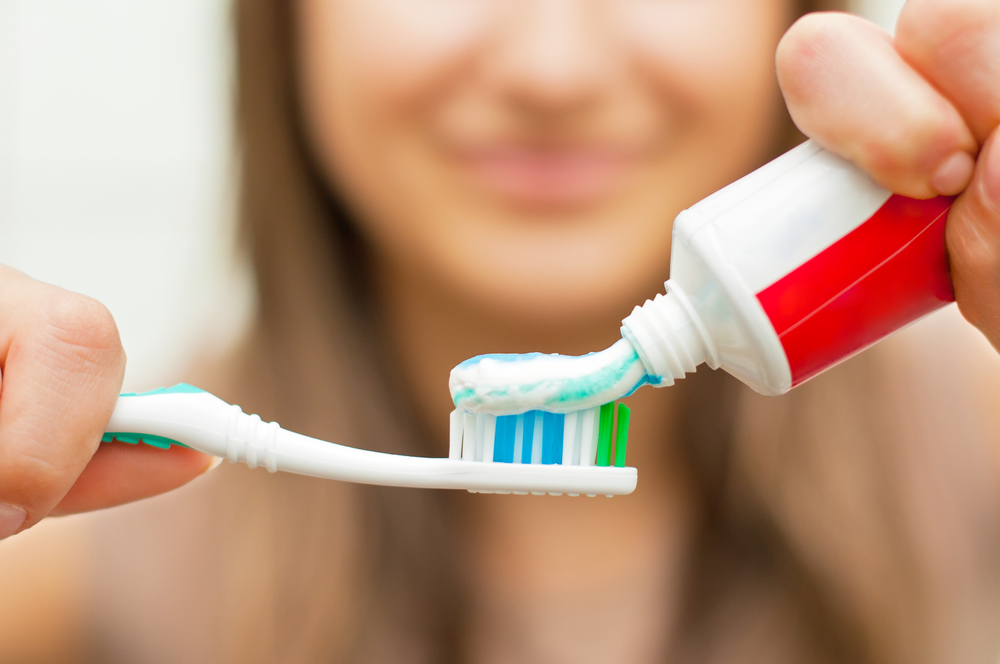Over the years, you’ve probably noticed how pervasive fluoride is in oral health products. Toothpastes contain fluoride, as do many oral rinses. It is even added to the water supply as a public health benefit. Certainly, you’ve figured out that fluoride must be good for your teeth, but do you know what it does for your teeth?
Fluoride Remineralizes Tooth Enamel
Cavities are caused when tooth enamel becomes demineralized by acids, especially those excreted by mouth bacteria. The acids released by bacteria tend to leach minerals out of your enamel and cause soft spots on the teeth. If those soft spots are not treated, they develop into holes, or cavities. Fluoride ions can prevent this process by doing the opposite. Fluoride encourages minerals (calcium, mostly) to be deposited back into the enamel, thus re-mineralizing and hardening the tooth.
Fluoride Strengthens Tooth Enamel
Fluoride doesn’t just put calcium back into your tooth enamel; it also goes a step further and creates a stronger version of it. Natural enamel is made of a crystalline form of calcium called hydroxyapatite. After a tooth has been treated with fluoride, however, it creates a stronger version of your enamel called fluorapatite. This new, better version of your tooth enamel is more resistant to acids than hydroxyapatite, which means your teeth will not be as vulnerable to the harmful effects of an acidic environment.
Fluoride Stops Bacteria
Beyond fluoride’s ability to harden and strengthen your enamel, it also plays a role in making bacteria less damaging to teeth. When fluoride is present in the mouth, in inhibits bacteria’s ability feast on food residue, and thus create the acids that cause cavities. How does it do this? Fluoride prevents bacteria from creating the enzymes they need to digest the sugars and starches that linger on the teeth. Therefore, fluoride controls mouth bacteria’s ability to eat, grow, and multiply. With just regular use of fluoride toothpaste, you are effectively cutting off mouth bacteria from their food source.
Why is Fluoride Added to the Water?
Now that you know what fluoride does, you may wonder how it helps to ingest fluoride from a water source, and from foods grown with fluoridated water. When small amounts of fluoride are consumed, they end up leaving traces in our saliva. Since saliva is in constant contact with the teeth, its presence in the mouth can be a constant source of protection for the teeth between tooth brushings and fluoride treatments.
Warning: Fluoride Can Be Dangerous!
Just like many other helpful substances—water and salt, for example—too much fluoride can have a harmful effect on the body. Fluoride can be toxic in high doses, and it can also cause unsightly stains if children consume it while their adult teeth are still developing (fluorosis).
You can keep your family in the safe zone by making sure small children don’t swallow fluoride toothpaste or fluoride-containing rinses. Parents should always monitor their children’s brushing habits and make sure that small children use non-fluoridated toothpaste until old enough to reliably spit, instead of swallow. Most kids are ready for fluoride oral hygiene products by about age three or four, but all kids are different, so use your best judgment.
Tips for Making Sure Your Family Gets the Full Benefit of Fluoride
- If you use a fluoride rinse after brushing your teeth, do not drink water for at least 30 minutes, so the fluoride stays in contact with the teeth.
- Teach your children to not rinse with water after they brush their teeth—just spit. Leaving a tiny amount of fluoride-containing toothpaste on the teeth can help ensure they get the full benefit of fluoride exposure.
- If your family drinks bottled water, they may not be getting any fluoride from it. Any water that has been distilled, ionized, or purified will likely have any fluoride removed. Spring water may contain some naturally occurring fluoride, especially if it’s labeled “bottled at the source.” If the tap water in your area is safe to drink, buy some reusable bottles and save all that money you’ve been spending on water!
If you need a dental provider, contact Knoxville children’s dentist Dr. Jack Haney. We are a general practice that provides oral care for all your family’s needs—including preventive, restorative, and cosmetic treatments. Call us at 865-693-6886 to make an appointment.





